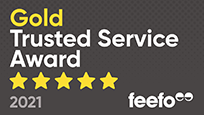Step by step
A business plan may be needed to secure finance so you can finally get your hands on your dream business. Many people are daunted by the task of writing a business plan.
There are many sites such as Gov.uk, Entrepreneur and Forbes, that offer advice on writing a business plan and templates to help you along the way.
Executive Summary
An executive summary is used to highlight the most important points from your business plan. This should be written last to ensure you have included all the important points but should go on the first page so this is the first thing people will read – make it count (first impressions mean a lot!).
This section should include:
• What is the business – selling clothes, a service business?
• What you are going to sell.
• Where you will sell from – will you be situated in a particular area or nationwide?
• Who will you sell to – does your business have a particular target market?
• Your opportunity in the market – is there a gap in the market you can target?
• Financial projections – what are you financial aims (short term and long term)
• Funding requirements.
Business Description – What is the business idea?
Here is where you explain the background to the business. This should include your plans going forward, what your product is, how the business can be developed in the future and any experience that you have in the field of work you are hoping to go into. You need to note your mission statement – this will structure your aims and goals.
Here is where you should take a moment to look at the industry you are looking to go into. For example:
• Special regulations
• Major changes in technology – will your business need to adapt to technological advances?
Market Analysis – Who are your customers and who’s already targeting them?
Make sure you fully understand your consumers – who are they, what interests them? Explain why they may use your business over already established businesses. It is important to mention any customers you already have lined up.
Look into the market you are targeting – is there any big names already dominating the market already? You should look into how big the market is, is there room for you?
Competitors are important to keep an eye on, can you offer a better product? Here you need to evaluate the pros and cons of each of your competitors, is there anything you can do to prove you are different to them.
Market Strategy –Sell, sell, sell.
Marketing is any activity that attempts to contact potential customers.
- Word of mouth
Word of mouth is still a very important form of marketing, with the ease of communication increasing (social media, mobile phones etc.) people have more opportunities to discuss experiences. For example research by Nielsen suggests that 77% of consumers are more likely to buy a product when they learn about it from friends or family. So if you can encourage positive word of mouth, it could massively boost business.
- Advertising
Businesses advertise in many ways, TV adverts, on the internet. Note what form of advertising you’ll be using, how much it will cost, who it’ll target etc.
- Direct marketing
Will you be using direct marketing? Consider if the costs will outweigh the benefits and if this is the best way to contact your target market.
- Website
Will your website be an e-commerce website – produced to sell your products or a website for information?
- Social media
With the rise of smart phones and tablets, social media was risen vastly with practically everyone having the opportunity to access a social media. Research by Nielsen suggests that 43% of consumers are more likely to buy a product is they learn about it from social media.
This means social media gives businesses the opportunity to access thousands of consumers daily.
Note what social media profiles would benefit your business – remember different types of businesses will require different social media platforms.
- Business Literature
E.g. Leaflets and business cards, note how you will distribute these to customers.
Management –Do you have the skills?
How will the business run on a day to day basis? Do you need to hire someone with different skills?
Operations – The day to day running.
You will need to understand how the business will run on a day to day basis.
Here you need to consider:
- The facilities you will need to start (equipment, phone and desk?)
- Employee roles – also consider what kind of skills they need to fulfill the role correctly.
- Suppliers
Financial Forecasts – What are your estimated sales?
You will need to include sales forecasts, how many sales are you aiming for in your first year?
Some businesses are affect by seasonal factors e.g. holidays, weather etc – will your sales be different in some months?
It is essential to include a cashflow forecast as this shows the money that will be flowing in and out of your business. It must show that the business will have enough money to survive.
You also will need to include a profit and loss forecast, this will give a clear indication of how the business will perform.
Financial Requirements – Contingency plans.
Consider what if scenarios and how you would react to. It’s important to have contingency plans in case your business runs into some problems.
Appendices
Here you should include other relevant information such as market research data, CVs of key personnel or product literature.
